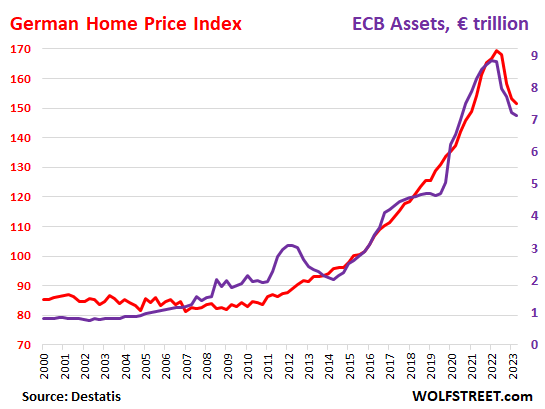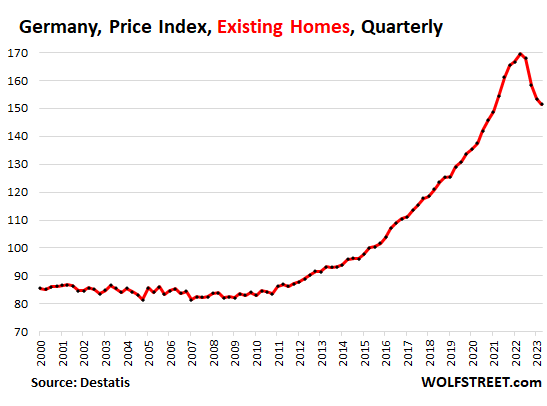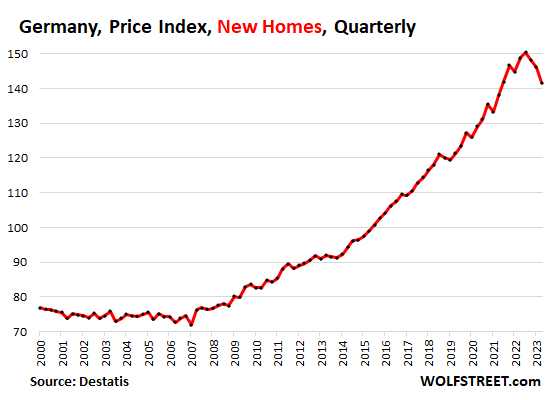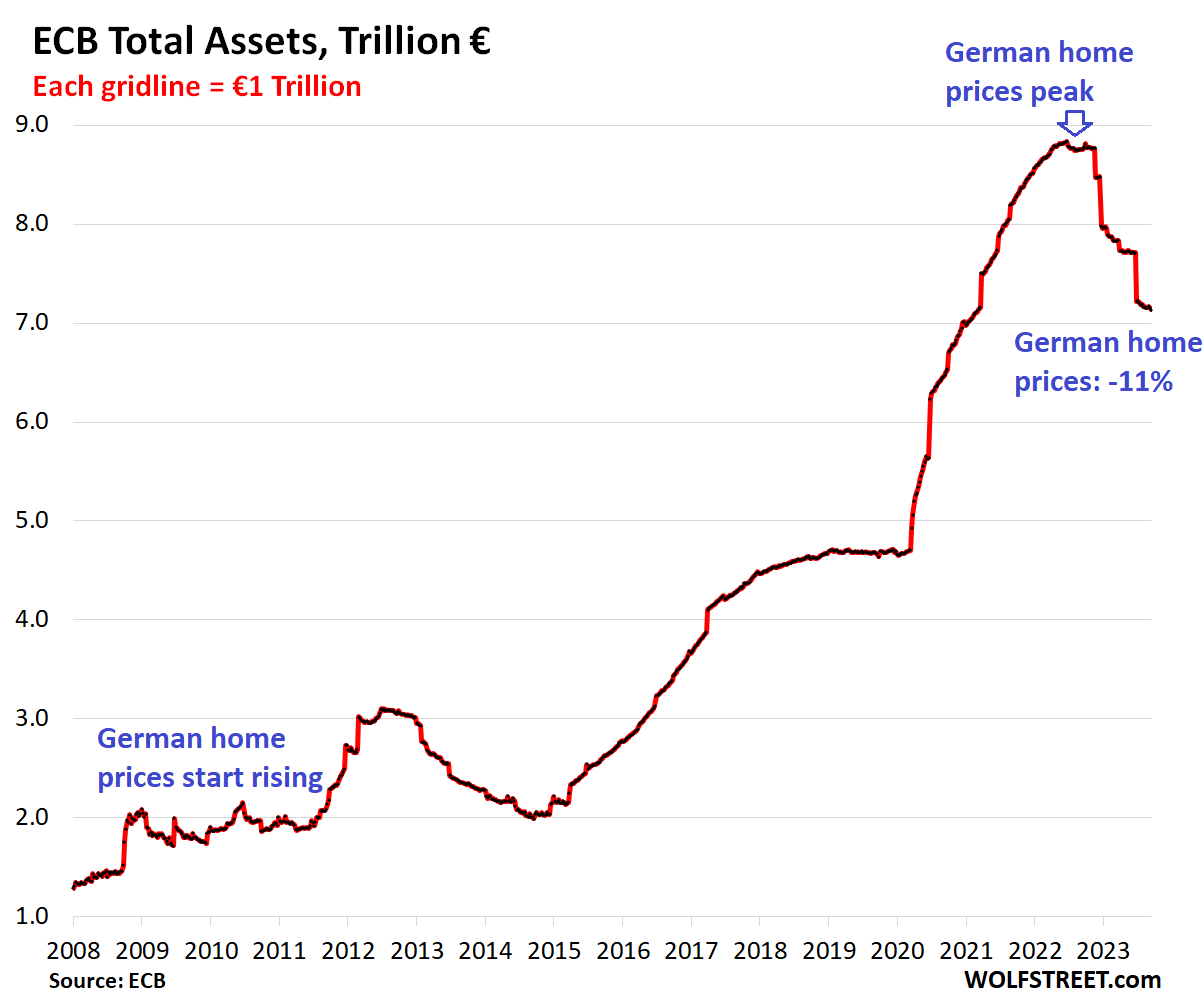The QT show started less than a year ago. German home prices -11%, ECB assets -19%.
By Wolf Richter for WOLF STREET.
The chart shows Germany’s price index for existing homes (red, left scale), released today by the German statistical agency Destatis, and the ECB’s balance sheet (purple, right scale) in trillions of euros. It shows the reality of QE: it causes rampant home price inflation; and when QT kicks in, home prices decline.
In 2008, the ECB started going haywire, cutting interest rates and printing money, first in reaction to the Global Financial Crisis, then in reaction to the Eurozone Debt Crisis, then in reaction to no crisis, and then super-massively in reaction to the pandemic. The ECB pushed its short-term deposit rate into the negative in 2016 and it stayed negative until July 2022.
The ECB’s massive QE pushed down longer-term interest rates of all kinds, along with mortgage rates, and home prices in Germany more than doubled in 12 years, while the ECB’s balance sheet multiplied by a factor of nine, from €1 trillion to nearly €9 trillion. They peaked at the same time last summer, and both have now dropped sharply. We’ll get into the details in a moment.

Prices of existing homes in Germany, after having more than doubled in 12 years since 2010, dropped by 1.2% in Q2 from the prior quarter, the fourth consecutive quarter in a row of declines. From the peak in Q2 2022, the index has dropped by 10.7%, the worst and only major decline in the data going back to 2000, according to the German statistical agency Destatis today. These are used single-family houses, duplexes, and condos.
Between 2010 and Q2 2022, the index has soared by 104%, including a crazy spike during the money-printing pandemic. The index has now unwound only a little more than the final year of gains.
Prices dropped the most in Germany’s largest metro areas – Berlin, Hamburg, Munich, Cologne, Frankfurt, Stuttgart, und Düsseldorf – with prices of condos dropping 9.8% and prices of single-family houses and duplexes dropping 12.6% year-over-year. In less densely populated areas, prices also fell, but not as much, according to Destatis.

Prices of new homes peaked one quarter behind existing homes, in Q3 2022, and the drop is now picking up momentum. In Q2, the index plunged 3.0% from Q1, which brought the drop from the peak in Q3 2022 to 5.8%, according to Destatis today. These are new single-family houses, duplexes, and condos.
Between 2010 and the peak in 2022, prices had spiked by 87%.

Germany’s surge in home prices, starting in 2010, was clearly driven by the crazed monetary policy of the ECB at the time that included eventually negative interest rates and gigantic QE, which took the form of bond purchases and massive loan programs to banks that banks could use to buy assets with or do whatever.
In the summer of 2022, the ECB’s balance sheet peaked, and in the fall, the ECB started QT. From the peak, total assets have now dropped by €1.7 trillion, or by 19%, to €7.14 trillion, while German home prices have dropped around 11%.
Now that there is rampant inflation in Europe that turns out to be difficult to control, there have already been calls by ECB governors to speed up the roll-off of the bond portfolio, instead of hiking interest rates much further. The UK already announced at the last policy meeting that it would speed up QT, even as it held rates steady.

Enjoy reading WOLF STREET and want to support it? You can donate. I appreciate it immensely. Click on the beer and iced-tea mug to find out how:
Would you like to be notified via email when WOLF STREET publishes a new article? Sign up here.
![]()
Read More:QE Giveth, QT Taketh Away: German Home Prices vs. ECB Balance Sheet
2023-09-22 22:17:40

